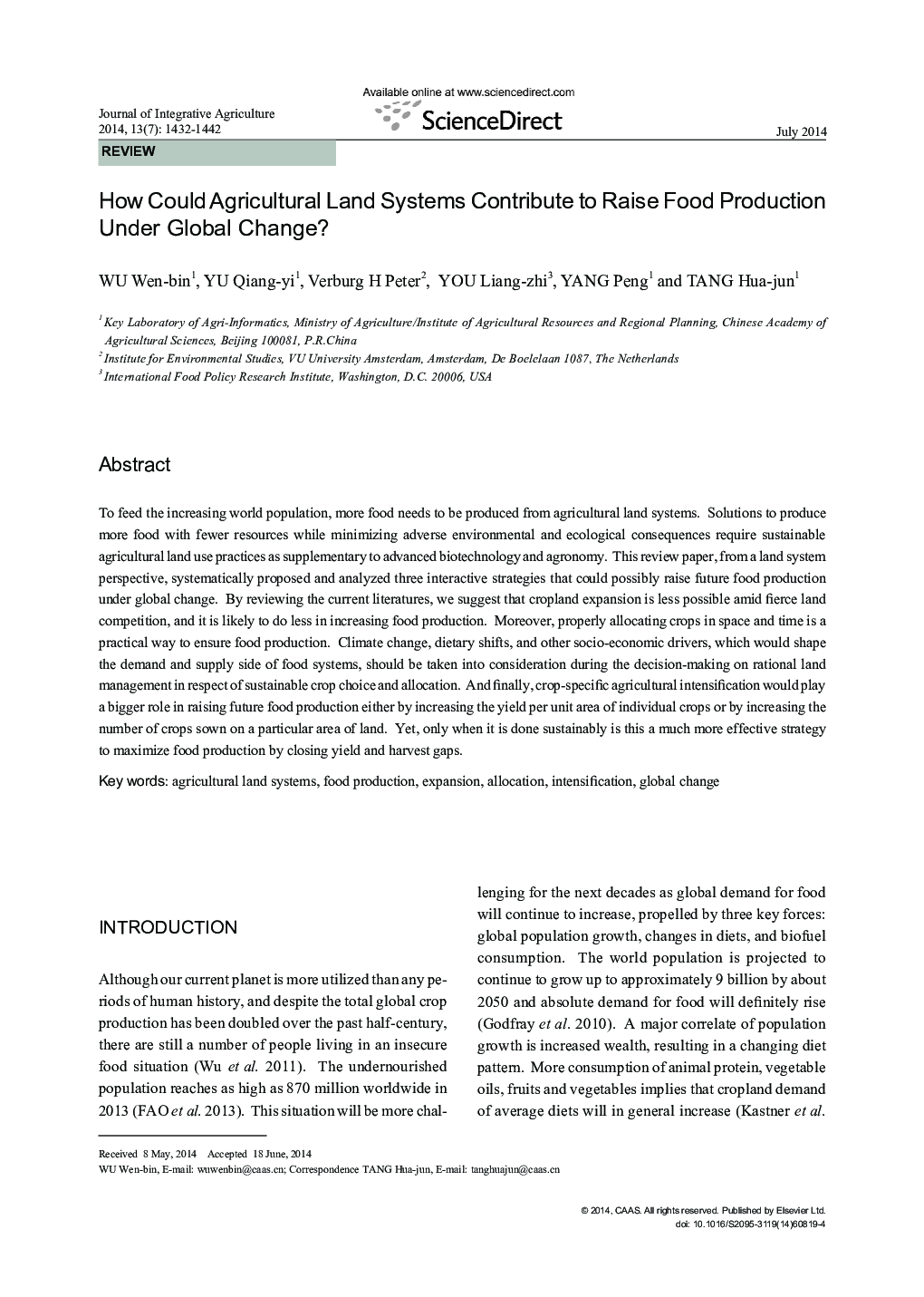| Article ID | Journal | Published Year | Pages | File Type |
|---|---|---|---|---|
| 4494459 | Journal of Integrative Agriculture | 2014 | 11 Pages |
To feed the increasing world population, more food needs to be produced from agricultural land systems. Solutions to produce more food with fewer resources while minimizing adverse environmental and ecological consequences require sustainable agricultural land use practices as supplementary to advanced biotechnology and agronomy. This review paper, from a land system perspective, systematically proposed and analyzed three interactive strategies that could possibly raise future food production under global change. By reviewing the current literatures, we suggest that cropland expansion is less possible amid fierce land competition, and it is likely to do less in increasing food production. Moreover, properly allocating crops in space and time is a practical way to ensure food production. Climate change, dietary shifts, and other socio-economic drivers, which would shape the demand and supply side of food systems, should be taken into consideration during the decision-making on rational land management in respect of sustainable crop choice and allocation. And finally, crop-specific agricultural intensification would play a bigger role in raising future food production either by increasing the yield per unit area of individual crops or by increasing the number of crops sown on a particular area of land. Yet, only when it is done sustainably is this a much more effective strategy to maximize food production by closing yield and harvest gaps.
